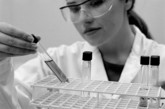Biosimilars/News
Minimal 12 years of biologicals data exclusivity required
As reported by Gene Quinn on IPWatchdog.com, for many months we have been hearing about the US government attempts to “reform” health care in the United States.
Teva seeks closer ties with Lonza on biosimilars
Biogenerics is a field that is becoming more and more important to Teva and the company seeks to deepen its existing ties in this area with Swiss company Lonza. Sources inform Globes that Teva President and CEO, Shlomo Yanay, CFO Eyal Desheh, and all the company’s board, flew to Switzerland for two days of meetings intended to extend the collaboration between the two companies.
Pfizer’s biosimilars strategy
“I think it is a good strategy for a large company like Pfizer that wants to be a player in generics”, Ronny Gal, a Sanford C Bernstein Analyst in New York said. “I would be surprised if they weren’t considering biogenerics”.
Dr Stephen Sherwin: Biosimilars pathway with 12 to14 years of biologics exclusivity
BIO SmartBrief Editor Ashley McMaster, corresponded with Ceregene co-Founder/Chairman and BIO Board Chair Dr Stephen Sherwin to get his thoughts on what direction the biotechnology industry is headed in 2010.
Teva submits BLA for biosimilar filgrastim in US
Teva has taken its first step in the US biosimilars market. On 1 December 2009 the company submitted a Biologics License Application (BLA) with the US FDA for XM02, a biosimilar filgrastim for the treatment of severe neutropenia, a blood disorder characterised by an abnormally low number of neutrophils, the most important type of white blood cells in the blood.
Biosimilar EPO, vildagliptin and liraglutide among latest Japanese recommendations
The latest batch of positive product recommendations in Japan includes a biosimilar erythropoietin (EPO) and two novel antidiabetics, Novartis’s DPP-4 inhibitor Equa (vildagliptin) and Novo Nordisk’s GLP-1 analogue Victoza (liraglutide).
Market protection for biologicals should be less than 12 years
Giving 12 years of market protection to brand-name biopharmaceuticals would add to mounting pressure on healthcare costs and deprive patients of affordable follow-on biologics for many years, according to an editorial in The Boston Globe. It says US Congress should enact a law that provides exclusivity for more than five years but fewer than 12 to balance innovation and affordability of biotech drugs.
US bill would add six months' protection for biotech drugs
A US healthcare reform bill introduced by Senate Majority Leader Harry Reid would extend the protection some brand-name biotech medicines would get from their generic counterparts by six months. An industry executive said this would provide an incentive for companies to make products for children.
Top 10 blockbuster biotech drugs: next biosimilar targets?
FierceBiotech’s Top 10 Blockbuster Biologics may be future biosimilar targets:
It may take four to five years before the first US biosimilar is a fact
It may take about four to five years for a biogeneric drug to hit the US market, even though industry experts are optimistic about the passage of pending healthcare reform legislation there by the end of 2009.











